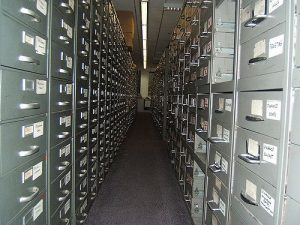
From national parks and healthcare to taxes and nutrition, federal civilian agencies feature an incredibly large and diverse set of missions. These agencies oversee almost every aspect of American life with an endless sea of projects, programs and general oversight.
But, as Deloitte Consulting’s Mark Urbanczyk said during a recent webinar on how civilian agencies can use analytics, the outside dynamics are rapidly changing. Agencies face external pressure both from the Trump administration and the public to leverage data analytics.
“Call it the Amazon Effect or the Apple-fication of customer service, but people today expect the same experience from government as they do from private corporations,” Urbanczyk said. “Agencies must leverage analytics to improve operations and find sore spots for citizens to improve their service.”
Urbanczyk said the Trump administration has called on federal agencies to take a more business-oriented approach. There is a larger emphasis on the bottom line and making decisions based on a sound business case, something only analytics can truly provide.
Deloitte’s Vishal Kapur added that the Trump administration has also made a concerted effort to push agencies to reduce fraud, waste and abuse. While this has been a focus of nearly every administration, the Trump administration has reemphasized this need. Analytics can help agencies explore where they are susceptible to fraud, waste and abuse -- and make changes to combat them.
During the webinar, which you can view here, the panel of experts discussed a number of topics, including:
- How the DATA Act and the explosion of data have made it a great time to consider analytics platform modernization.
- How modernized analytics can help agencies deal with tighter budgets.
- How machine learning and cognitive computing are being used across the industry.
- How to personalize services and improve experiences and satisfaction.
Erin Stevens, SAS’ Health and Human Service Federal Team Lead, said there is no shortage of data to make these critical decisions.
“There has been more data produced in the last two years than the entire history of mankind – a statistic that is just staggering,” Stevens said. “There is no shortage of information to make decisions. Agencies must prepare themselves with the right tools to take advantage of this data to make substantive changes.”
Analytics can lead to decisions which can lead to change. This was one of the key takeaways from this webinar as well as one of the key topics at the recent SAS Analytics Experience conference, where we discussed how analytics can help society.
A number of federal civilian agencies have missions that directly impact the citizen. By using analytics these agencies can help make drastic improvements to improve communities around the country. That includes helping to fight the opioid epidemic, assisting abused and neglected children and helping to reduce high school dropout rates. This is the power of modernized analytics programs.
